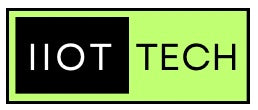The Internet of Things (IoT) is changing how we connect our devices, impacting fields from healthcare to agriculture. Each IoT device relies on a programming language to determine how it works and communicates with its surroundings. Deciding on the best programming language for your IoT project depends on factors like what you're building, the hardware you're using, and your development goals. In this article, we'll explore commonly used programming languages for IoT and provide clear explanations for when and why you should choose one, while also discussing the roles of Arduino and Raspberry Pi in the IoT landscape.
C/C++ for IoT
C and C++ are well-known choices for IoT development due to their efficiency and ability to control hardware directly. These languages are ideal for situations where you need to control hardware precisely. Here's when you should consider C/C++:
Microcontrollers and Sensors: If you're working with devices like Arduino and sensors, C/C++ are the go-to languages. They allow you to control hardware components directly, which is crucial for optimizing resource usage.
Real-time Systems: In applications that require immediate responses, such as industrial control systems and robotics, C/C++ are excellent choices due to their predictability.
Python for IoT
Python is gaining popularity in IoT because of its simplicity and ease of use. While it might not be as fast as C/C++, Python is a great choice when you need to develop quickly and want your code to be easy to read. Consider Python for:
Prototyping: When you need to create a quick proof of concept, Python is a great choice. It's often used with Raspberry Pi for this purpose because it works well with various hardware components.
Data Analysis and Machine Learning: Python's libraries, like TensorFlow and PyTorch, are valuable for IoT applications that involve data analysis or machine learning.
JavaScript (Node.js) for IoT
JavaScript, especially when used with Node.js, is suitable for IoT applications that involve web-based interfaces and communication. Here's when JavaScript shines:
Web-connected Devices: If your IoT devices need to interact with web servers, handle web requests, or offer web-based control interfaces, JavaScript (Node.js) is a good choice. This is especially useful for IoT solutions that require remote monitoring and control.
Arduino and Raspberry Pi
Arduino and Raspberry Pi are two widely-used platforms in the IoT world, each with its unique strengths:
Arduino boards are great for small-scale IoT projects and prototyping. They usually use C/C++ for programming and are the preferred choice when you need to make efficient use of resources and require real-time control.
Raspberry Pi on the other hand, is a versatile single-board computer that can run various programming languages, including Python and JavaScript. It's a good fit for applications that need more computational power, various connectivity options, and support for complex software.
Conclusion
Choosing the right programming language for your IoT project requires a careful assessment of your project's specific needs, including the application, hardware, and development goals. Each programming language has its advantages and limitations, considering factors like speed, ease of development, and community support.
Ultimately, the success of your IoT project depends on selecting the best language for your unique requirements. Whether you choose the precise control of C/C++, the fast development of Python, the web capabilities of JavaScript, or the safety features of Rust, your decision should be rooted in your project's needs. Additionally, your choice of platform, whether Arduino or Raspberry Pi, also plays a crucial role in shaping your IoT solution.



